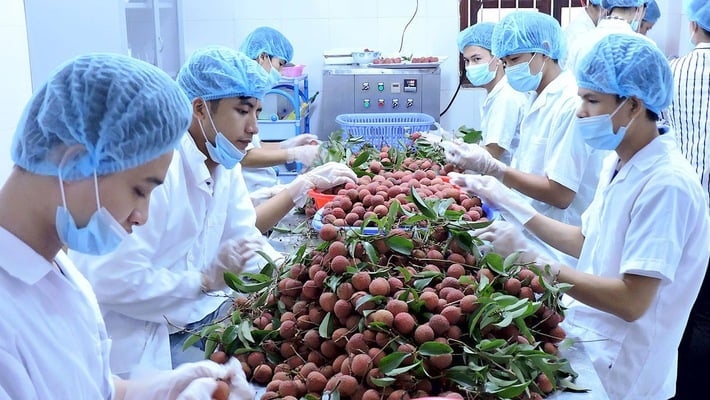
Statistics released by the General Department of Vietnam Customs indicate that fruit and vegetable exports earned nearly US$3.57 billion between January and mid-July, making fruit and vegetables the third largest export items among farm produce.
China remained the largest consumer of Vietnamese fruit and vegetables in the reviewed period, spending US$2.16 billion purchasing the products, up 22% against the same period last year.
It was followed by the Republic of Korea and the United States that purchased US$164 million and US$157 million from the Vietnamese products, up 54.6% and 33.5%, respectively.
Most notably, exports to Thailand recorded the highest growth rate of up to 95.5% compared to last year’s corresponding period.
Experts say Vietnamese fruit and vegetable exports in the second half of the year will continue to rise thanks to seasonal factors coupled with an abundance of supply sources.
The increasing global demand is predicted to help the country to rake in over US$7 billion from fruit and vegetable exports this year.
Dang Phuc Nguyen, general secretary of the Vietnam Fruit and Vegetable Association, says that Vietnamese farm produce has enjoyed numerous advantages in exports to the Chinese market thanks to geographical location coupled with similarities in culinary culture.
Durian is one of the farm produce which has proved particularly popular among Chinese consumers. In April, Vietnam surpassed Thailand to become the largest supplier of this fruit to China, with 32,750 tonnes shipped to the lucrative market.
Nguyen anticipates that fruit and vegetable exports will continue to grow by between 15% and 20% this year, providing that businesses take full advantage of the opportunities from signed protocols.
Meanwhile, markets such as the US, Japan, and the EU have also opened their doors to the prospect of importing more Vietnamese fruit due to its high quality.
In particular, thanks to advantages of the EU-Vietnam Free Trade Agreement (EVFTA), the country has exported a number of stable products such as bananas, durian, coconut, longan, and spices to the demanding market.
Moreover, apart from dragon fruit, mango, and lychee, Vietnamese fresh longan has also made inroads into the Japanese market, opening a wealth of opportunities for Vietnamese fruit to enter other developed countries moving forward.
According to industry insiders, fruit and vegetable enterprises are required to improve quality and strictly comply with regulations on product quality and origin traceability in a bid to further penetrate these markets.



















.jpg)




